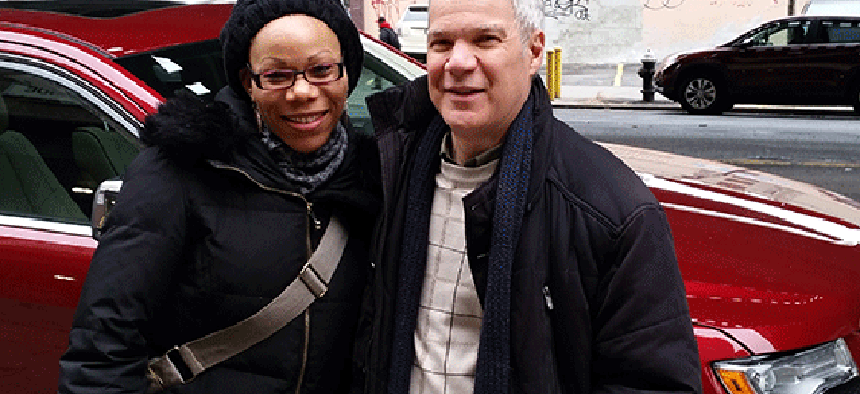Services for the Underserved awarded $3 million to serve potentially violent mentally ill

Services for the Underserved is one of three nonprofits awarded NYC Safe funding to develop and implement Intensive Mobile Treatment teams, the organization announced on their website.
SUS has been awarded $3 million over three years to support IMT teams that will provide coordinated mental health services to individuals experiencing a combination of homelessness, mental health issues and incarceration as part of this initiative led by New York City Mayor Bill de Blasio’s office and the New York City Department of Health and Mental Hygiene.
The nonprofit will provide ongoing care to 25 individuals identified by DOHMH through the NYC Safe initiative and reach out to referred individuals within 24 hours. The mayor’s office said it is working quickly to grow capacity for this program.
CASES, which works with court-involved youth and adults with special needs, and the Center for Urban Community Solutions also received NYC Safe awards to develop and implement IMT teams, according to a mayor’s office spokeswoman. SUS was also awarded a NYC Safe grant of nearly $111,000 per year to hire Substance Abuse Specialists to support its three Assertive Community Treatment teams in Harlem. These teams will treat individuals with both substance use and mental illness. Additional providers for the forensic ACT teams will be announced at a later date, the city spokeswoman said.
“Our hope is to provide these individuals with a safe environment. They are the most vulnerable population and they are most often victimized,” SUS Senior Vice President for Behavioral Health Wanda Cruz-Lopez said in a statement. “We look forward to averting them from cycling through the criminal justice system, shelters and emergency rooms by working collaboratively towards their safety, stability and recovery.”
The IMT teams will consist of a social worker, a psychiatrist, a registered nurse, three clinicians and a certified alcohol and substance use counsellor. SUS will also work closely with the New York State Division of Parole, law enforcement and the city Department of Correction. Clients will be offered therapeutic, vocational and medical services and will continue to be treated if incarcerations occur. For example, the team may help make sure individuals receive their medications, assist in reconnecting them with family members and coordinate doctor’s appointments.
The IMT team will use various evidence-based practices such as Integrated Dual Disorders Treatment, Addiction and Trauma Recovery Integration Model, motivational interviewing and a peer model of care to perform their work. Assessment tools will be used to identify the clinical and psychological needs of each individual and provide the appropriate treatment.
NYC Safe is a $22.4 million de Blasio administration initiative partnering law enforcement and health care agencies to serve those who are seriously mentally ill and at a high concern for violence. Individuals identified by street sweeps performed as part of de Blasio’s Homeless Outreach and Mobile Engagement Street Action Team HOME-STAT will be eligible if they meet these criteria.
“It is our sacred mission to address a broken mental health system and to revolutionize how we care for all those who are struggling. That includes the small percentage of those with mental illness that, left untreated, are at risk of committing violence against themselves or others,” de Blasio said when the initiative was announced in August of last year.
SUS has a budget of over $185 million and a staff of close to 2,000 who serve more than 25,000 consumers annually across more than 100 sites throughout New York City. These consumers are people with disabilities, people in poverty and people facing homelessness.